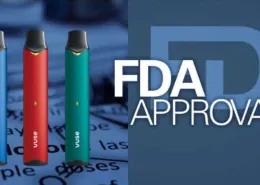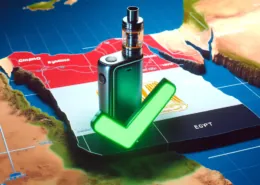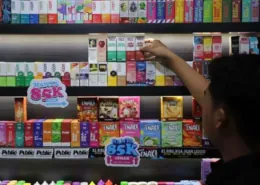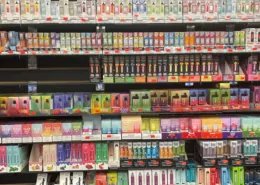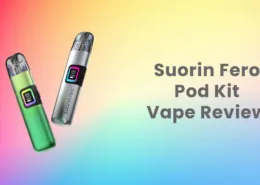TGA’s Vaping Crackdown: Enforcing Regulations on Unregistered Vaping Products
In recent years, the popularity of vaping has surged, particularly among younger individuals. While vaping may be seen as a trendy and modern alternative to traditional smoking, it has raised concerns about health risks and the regulatory landscape surrounding these products. The Therapeutic Goods Administration (TGA), as the medicines regulator in Australia, has taken a significant step forward by cracking down on the importation and use of unregistered vaping products. This proactive approach sends a clear message that the TGA is committed to enforcing regulations and ensuring public safety.
Unregistered Vaping Products
Recent events have seen four Sydney-based entities facing substantial fines for their alleged involvement in the importation of unregistered vaping products. These entities attempted to import a staggering 379,600 vaping products in 22 separate consignments. However, the Australian Border Force intercepted these unapproved products, prompting the TGA to take action. In total, the TGA issued 38 infringement notices, resulting in fines amounting to $588,840.
The entities implicated in this alleged importation of unregistered vaping products include TSG Liverpool Street Pty Ltd, TSG Balmain Pty Ltd, TSG Chatswood Pty Ltd, and Jaradat & Sabbagh Group Pty Ltd. It is alleged that these entities attempted to import nicotine vaping products that were not registered in the Australian Register of Therapeutic Goods and failed to comply with relevant standards.
Source:
The TGA conducted thorough laboratory testing on samples of the imported disposable vapes, specifically the IGET, GUNPOD, and HQD branded products. The findings revealed the presence of prohibited ingredients listed in the Therapeutic Goods Order (Standard for Nicotine Vaping Products) (TGO 110) Order 2021. The detection of these substances further reinforced the necessity for regulatory oversight and the need to ensure consumer safety.
Evaluating the Penalties
While the enforcement of the law is undoubtedly a positive step forward, questions arise regarding the adequacy of the fines imposed on the entities involved. Professor Nick Zwar, Chair of the RACGP’s smoking cessation guidelines’ Expert Advisory Group, raises concerns about the relatively small monetary penalties in the Australian context. In comparison to international examples like Korea, where the fines amount to US$200,000 [AU$294,000] per offense, the penalties imposed in Australia may be perceived as less effective deterrents. The issue of penalties has been brought to the attention of the government, highlighting the need for more substantial consequences for non-compliance.
Despite the concerns surrounding the penalties, Professor Zwar remains optimistic that this crackdown is an indicator of further actions to come. He emphasizes the necessity of tightening regulations to address the broader issue of vaping products entering the country without proper labeling, particularly regarding nicotine content. Studies conducted by the University of Wollongong and other institutions have revealed that over 80% of products without nicotine labels actually contain nicotine. This alarming statistic emphasizes the need for stricter regulations and increased scrutiny to protect public health.
Government Action
The TGA’s recent crackdown aligns with the Australian Government’s commitment to combat the black market for unlawful nicotine vaping products. In addition to a substantial $63 million advertising campaign designed to discourage vaping and smoking, the government plans to collaborate with states and territories to implement a range of measures. These measures include halting the importation of non-prescription vapes, raising the minimum quality standards for vaping products by restricting flavors, colors, and other ingredients, mandating pharmaceutical-like packaging, reducing allowed nicotine concentrations and volumes, and banning single-use disposable vapes.
The government’s proactive approach is a response to the growing concern over the use of unregulated nicotine vaping products, particularly among young people. Recent research conducted by Cancer Council Victoria for the Department of Health and Aged Care reveals that exclusive vaping is most common among individuals aged 18–24, while it is less prevalent among those aged 50 and over. It is crucial to address this concerning trend and educate the public about the associated health risks.
The use of unregulated nicotine vaping products poses various health risks, including nicotine addiction and poisoning, exposure to toxins, and the potential for serious injuries and burns. By implementing stricter regulations and cracking down on non-compliant products, the TGA aims to safeguard public health and protect vulnerable populations, especially young individuals.
Read more:
Australia to Ban Non-Prescription Vapes in Biggest Vaping Reforms
Reporting Non-Compliant Advertising
To strengthen enforcement efforts and maintain the integrity of the vaping product market, the TGA encourages individuals to report suspected non-compliant advertising of nicotine vaping products. If any non-compliance related to therapeutic goods is suspected, individuals can easily report illegal or questionable practices online to the TGA. By actively involving the public in reporting potential violations, the TGA can take swift action against non-compliant products and protect consumers from potential harm.
- Bestselling Vapes in UK After Disposable Ban: What to Stock 2025 - August 8, 2025
- Argentina Debates Stricter Vape Laws Amid Prohibition Failures - August 8, 2025
- Nigeria Advocacy Group Urged to Hike Tobacco & Vape Tax by 100% - August 8, 2025



